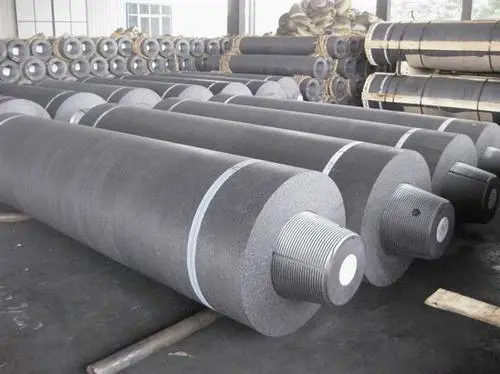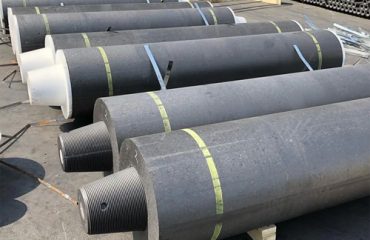
Graphite electrodes play a vital role in many industrial processes, particularly in the steel and aluminum industries. Their impact on industrial efficiency is significant and can be analyzed from multiple perspectives.
Firstly, graphite electrodes contribute to energy efficiency in industrial processes. In electric arc furnaces (EAFs) sed for steelmaking, graphite electrodes are essential for the conversion of electrical energy into heat. They provide the necessary electrical current to create the arc that melts the charge materials. The higher the electrical conductivity of graphite electrodes, the more efficient the energy conversion process becomes. High-quality graphite electrodes with low electrical resistivity allow for faster and more efficient melting of metals, reducing energy consumption and promoting overall industrial efficiency.
Moreover, the thermal conductivity of graphite electrodes also affects industrial efficiency. During the steelmaking process, the contact between the electrode and the molten metal generates significant heat. This heat needs to be distributed evenly to ensure uniform melting and proper refining. Graphite electrodes with high thermal conductivity facilitate the efficient transfer of heat to the metal and minimize heat losses. By maintaining the optimal temperature for the desired reactions, graphite electrodes enhance the productivity and efficiency of the industrial process.
In addition to energy and thermal efficiency, graphite electrodes also impact the overall productivity of industrial processes. The mechanical strength and durability of graphite electrodes have a direct bearing on the frequency of electrode replacements and the downtime required for electrode maintenance. High-quality graphite electrodes with excellent mechanical properties can withstand the extreme operating conditions of EAFs or other industrial furnaces, resulting in longer electrode lifetimes and reduced production interruptions. By minimizing the frequency of electrode replacements and associated downtime, industrial efficiency is significantly improved.
Furthermore, the purity and chemical stability of graphite electrodes play a crucial role in industrial efficiency. In the aluminum industry, graphite electrodes are used in the production of primary aluminum via the Hall-Héroult process. During this process, acidic aluminum fluoride electrolyte surrounds the graphite electrodes, subjecting them to corrosion. Graphite electrodes with high chemical resistance and low impurity levels can withstand the corrosive environment, ensuring stable and efficient aluminum production. Conversely, electrodes with low purity or inadequate chemical stability are prone to corrosion, resulting in frequent electrode replacements and production disruptions. By using high-quality graphite electrodes, industrial efficiency can be enhanced by reducing maintenance requirements, minimizing downtime, and optimizing production output.
The size and design of graphite electrodes also contribute to industrial efficiency. Larger and longer electrodes can provide a larger melting area and facilitate deeper electrode penetration into the molten metal. This increased melting area and penetration allow for greater productivity and efficiency during steel or aluminum production. Furthermore, the design of graphite electrodes, including their shape and connections, influences their ability to withstand high currents and thermal shocks. Well-designed electrodes that can withstand high electrical loads without failure are crucial for maintaining a stable and efficient industrial process.
Lastly, the cost-effectiveness of graphite electrodes is crucial for overall industrial efficiency. While high-quality graphite electrodes may have a higher initial cost, their longer lifespan and improved performance can lead to cost savings in the long run. By reducing energy consumption, minimizing downtime for maintenance and replacements, and optimizing productivity, the use of high-quality graphite electrodes can enhance industrial efficiency and provide a favorable return on investment.
Graphite electrodes have a significant impact on industrial efficiency across various sectors. Their electrical conductivity, thermal conductivity, mechanical strength, chemical stability, size, design, and cost-effectiveness all contribute to optimizing energy consumption, maximizing productivity, and reducing downtime. By using high-quality graphite electrodes that are tailored to specific industrial processes, companies can significantly improve their efficiency, profitability, and sustainability.

